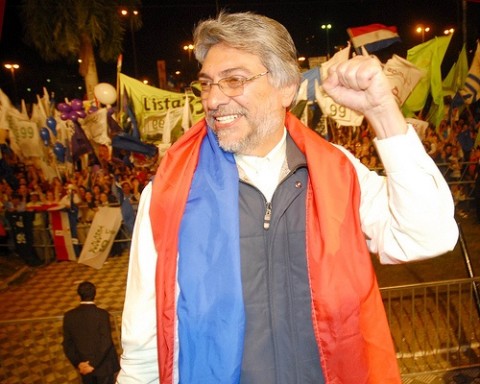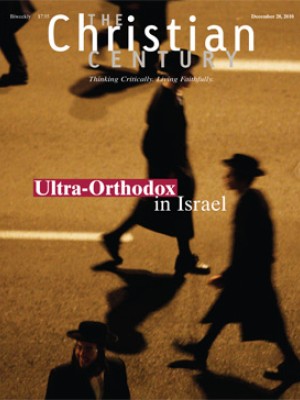A second spring

As an intellectual exercise, imagine that the September 11 attacks had never occurred. While we can speculate about what would have been the main issues in U.S. politics over the past decade, it's almost certain that North Americans would have paid much more attention to Latin America. That region has lived through some quite tumultuous events, from the near-collapse of Argentina in 2002 to the astonishing economic rise of Brazil. In particular, we would have noticed revolutionary political transformations in several countries and far-reaching changes in the continent's familiar religious assumptions.
One surprise is the persistence of Catholic liberation theology, long after its obituaries were written in the early 1990s. The church hierarchy purged or neutralized most of the leading liberation-minded theologians and bishops during the 1980s, and base communities stagnated. Nevertheless, the pupils of those liberationist thinkers remained active. Older theologies of liberation have fueled a general leftward drift in the affairs of several nations—a movement that presumably would have panicked U.S. authorities had they been able to drag their eyes away from confrontations in the Middle East and Southeast Asia. We might even say that the liberation movement has enjoyed a second spring.
Read our latest issue or browse back issues.
Much of the media attention has gone to the demagogic Hugo Chávez, who has ruled Venezuela since 1998. But leftist regimes have sprouted elsewhere—under Evo Morales in Bolivia and Fernando Lugo in Paraguay. Each government in its way builds on older religious foundations and maintains friendly relations with liberationist thinkers and communities. Lugo himself was a young Catholic priest in the late 1970s, when he was exposed to liberation theology. In 2005, he resigned as bishop in order to run for national office. He speaks the language of Catholic social thought and favors land redistribution. Liberation-minded clergy advise and support both Chávez and Morales. Morales's radical-minded deputy interior minister, Rafael Puente Calvo, is an ex-Jesuit, who studied in Spain in the 1970s. Ecuador's president, Rafael Correa, cites Catholic social teaching as the basis for his policies, which include threatening to repudiate the country's foreign debt.
Instead of taking over the institutional church, however, the liberation movements have often come into conflict with it, provoking bitter religious confrontations. As Catholic bishops have attacked both the Bolivian and Venezuelan regimes for being repressive or even anti-Christian, so political leaders have struck back at the mainstream Catholic Church. Both Morales and Lugo claim to be struggling to empower the common people, and for both men Catholicism is the ultimate symbol of reaction and entrenched privilege. In 2009, Morales proclaimed that the Catholic hierarchy "used prayer as an anesthesia so the people would not become free." Both Morales and Chávez have reduced the official role of the church, withdrawing state support. They have enhanced the privileges of other groups, both evangelical Protestants and, in Bolivia, followers of ancient Indian religions (Morales makes much of his Indian heritage). Chávez himself ostentatiously makes biblical and religious references in his rhetoric and has publicly flirted with Protestantism. On the other side, the Catholic Church presents itself as resisting tyranny, fighting calls for class warfare and defending human rights. But for both sides—for presidents and for bishops—religion provides the inescapable framework for political thought and action.
The religious spectrum in these nations is now much broader than hitherto. Nowhere is this more true than in Brazil, where evangelicals constitute 20 or 25 percent of the electorate. Since 2003 Brazil has been ruled by the highly successful democratic socialist regime of Luiz Lula da Silva, whose leftist ideology might have been expected to alienate Protestants. In fact, evangelicals offered their enthusiastic support. That's because Lula's roots in Catholic social teaching made him quite comfortable with fellow believers and because he reached out to evangelicals. Just like in U.S. presidential elections, the choice of a running mate plays a major role in reconciling rival interests. In the Brazilian context, that means appealing across denominational lines. Lula, therefore, the liberation-minded leftist, chose as his vice president a conservative linked to a thriving Pentecostal church, a believer who once delighted an evangelical gathering by reporting a "miraculous" improvement in his cancer.
In Brazil as in much of contemporary Latin America, politicians have to take into account religious beliefs and allegiances, seeking to reconcile conservative and leftist Catholics, balance Catholic and evangelical interests, and in some regions take into account the primal faiths that exist alongside Christianity.






